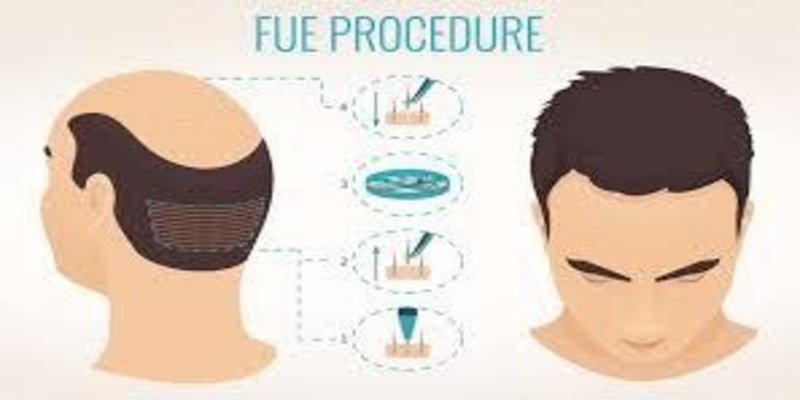Health & Fitness
Guide to FUE hair transplant to restore your hair growth

Transplantation of hair is a surgical procedure that involves removing hair follicles from the donor site to the recipient site. The donor site is the section that offers its excess hair to the area that needs more coat. This technique is primarily a way that is used to treat male pattern baldness.
While undergoing this minimally invasive procedure, the grafts that have hair follicles are immune to baldness. The hair transplantation is meant to restore eyebrows, beard, chest hair, eyelashes and fill the scars caused by accidents.
FUE hair transplant procedure is different from skin grafting. It contains not the dermis and the epidermis that surrounds the hair follicles. This article will supervise you on how the FUE hair transplant procedure happens in its process of restoring the growth of your hair.
FUE is a unique surgical method of hair transplantation that was developed in the 1990s. Back then, a surgical procedure entails cutting a patch of the patient’s skin to get the donor’s hair. However, with time they realized that it was unnecessary trauma and came up with ways of taking out hair follicles one by one. The earlier FUE techniques were unsophisticated with noticeable scars of the punch grafts. But with time, the surgical equipment improved, and today, the procedure is human.
Today, the FUE hair transplant treatment involves removing an individual follicle unit graft with at least one to four hairs. You only need to be put under local anesthetic by the use of tiny punches. The grafts get replanted on the donor section with the help of a needle. This procedure is more time to consume though it is a bit more expensive than the FUT.
Over time, it has been marked to be the best surgical method for treating baldness for both men and women. Many celebrities have used this procedure to transplant the hair, and it has successfully managed to sort out their hair issues. This only is critical evidence that it is a legible procedure that you can rely on. Its main advantage over the strip harvesting is that the FUE scarring is minimal. Also, it is only visible for the first two weeks then diminishes after the operation. This is all because the FUE scars only shrink a few millimeters.
Transplantation of the hair is the only permanent yet long-term solution when it comes to baldness. Anyone who has experienced hair loss should try for hair restoration candidature regardless of their gender. But for anyone below 25 years, it is not advisable to go through these procedures. There are many reasons for hair transplantations. Perhaps one could lose their hairline and get creeping baldness. It is advisable to sort the FUE hair restoration method believed to sort the hair loss problems with ease.
Conclusion
If you have been looking forward to going through the FUE hair transplants, we are hopeful this article is helpful. The detailed information is a full guide to FUE hair transplant, a procedure that can help you regain your hair after hair loss. The hair transplantation future looks bright. FUE continues to dominate the hair transplantation category as much as it has not found its competitor who beats them even in the year to come. Although it is not a suitable procedure for some people, FUT will always have a place alongside it. The new stem cell techniques and hair cloning are still fresh, making them less likely to have significant impacts. However, for the long-term benefits, the two upcoming procedures may help the surgeons and offer new hair solutions to the patients suffering from hair loss.
-

 Stock Market6 days ago
Stock Market6 days agoUS Stocks Soar as Court Blocks Trump Tariffs and Nvidia Delivers Strong Earnings
-

 Government6 days ago
Government6 days agoCongress Passes Continuing Resolution, Averting Government Shutdown
-

 Press Release5 days ago
Press Release5 days agoCV5 Capital Announces Standout Performance of Cryptanium Fund I SP, Beating Industry Benchmarks
-

 Government6 days ago
Government6 days agoExperts Warn of U.S. Slide Towards Authoritarianism Under Trump Administration
-

 Alternative Energy7 days ago
Alternative Energy7 days agoShalom Lamm on Rising Rent and the Future of Housing
-

 Business2 days ago
Business2 days agoS&P 500 Soars in Best May in Decades Amid Tariff Relief and Nvidia’s Surge
-

 Healthcare4 days ago
Healthcare4 days agoAttention Economy Arms Race: Reclaim Your Focus in a World Designed to Distract You
-

 Immigration2 days ago
Immigration2 days agoTrump’s Immigration Crackdown: Legal Battles and Policy Shifts




























